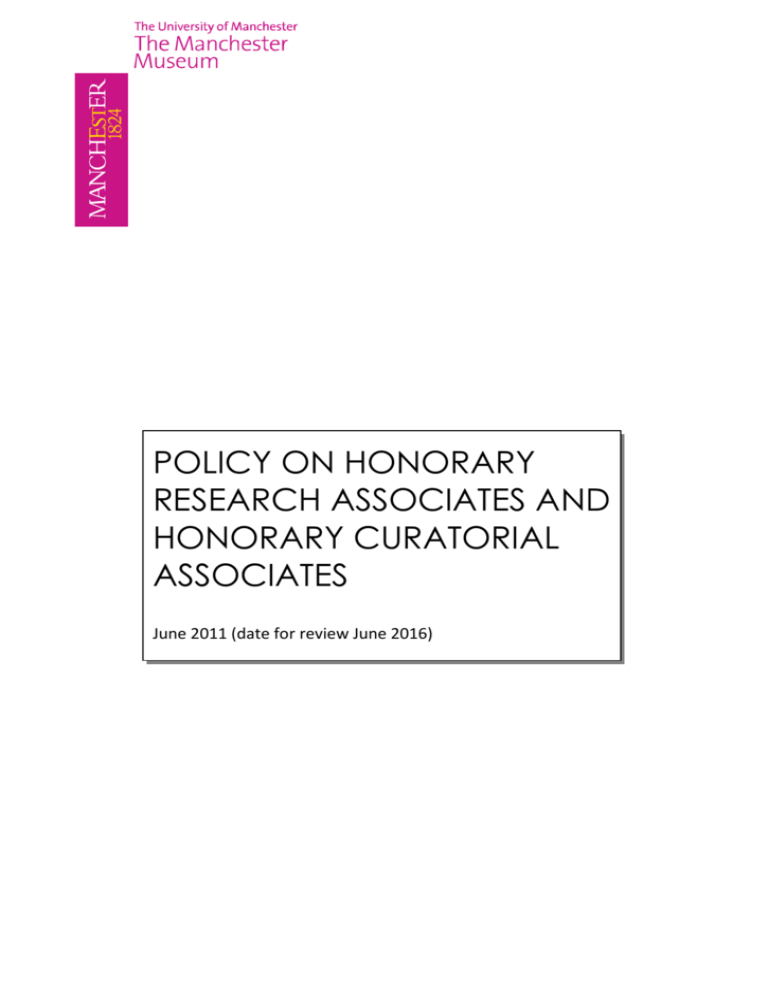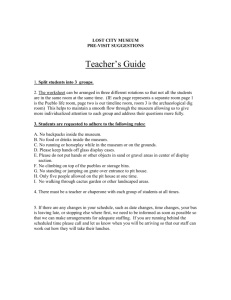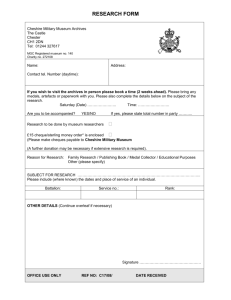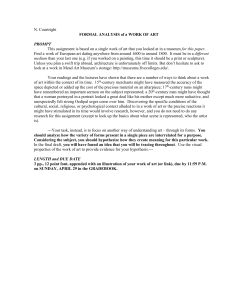POLICY ON hONORARY Research aSSOCIATES and
advertisement

POLICY ON HONORARY RESEARCH ASSOCIATES AND HONORARY CURATORIAL ASSOCIATES June 2011 (date for review June 2016) Policy on the appointment of Honorary Research Associates and Honorary Curatorial Associates Purpose This policy sets out our intention to support and recognise the contribution of people who don’t work for the Manchester Museum but who help to deliver its academic and collections management goals. This will be achieved through the appointment of Honorary Research Associates (HRAs) and Honorary Curatorial Associates (HCAs) for a fixed term of up to three years. HRAs and HCAs will work on agreed programmes of activity related to the collections, history and practices of the Museum. HRAs and HCAs will work to promote the mission and values, and deliver the ambitions of, The Manchester Museum and The University of Manchester and to bring credit to the Museum and the University. Who we are The Museum is one of the cultural assets of The University of Manchester. We work to achieve the ambitions of the University in the areas of research, higher learning and social responsibility. The Museum is the largest university museum in the UK and has an enormous collection of approximately 4.25 million objects, from both natural sciences and humanities disciplines. The collections were formally Designated by the UK government as being of international importance in 1994. All of our work fits within two broad strands of work which are: promoting understanding between cultures working towards a sustainable world. All museum activities draw on, and are based around, the museum’s collection, history and practices, its university context, and its relationships with its audiences and local communities. Why we are we appointing HRAs and HCAs We aim: to widen our portfolio of research and public engagement activities by appointing and supporting HRAs. to improve the condition of the collection and increase public engagement opportunities by appointing and supporting HCAs. Honorary Research Associates Honorary Research Associates are appointed on the basis that they will produce research outcomes (publications, lectures, conference contributions or exhibitions) based on their programme of activity with the museum, be it on its collection, history or practices. They are not required to have a track record of research publications. HRAs are also expected to contribute to the museum’s public and academic engagement activities as part of our social responsibility agenda. Honorary Curatorial Associates Honorary Curatorial Associates are appointed on the basis that they will undertake a sustained programme of activity to improve the condition of the collection by working to help deliver institutional workplans in documentation and storage. HCAs are also expected to contribute to the museum’s public and academic engagement activities as part of our social responsibility agenda. Status and exclusions HRAs and HCAs are not paid staff and an appointment is in no way intended to confer or imply any kind of employer-employee relationship. HRA and HCA are formally appointed by the University and are entitled to a library card. The status of HRA or HCA does not apply to 2 people who are on placements, interns, volunteers or people being paid for Museum work. Individuals who are working for organisations from which the Museum benefits financially will not normally be appointed as an HRA or HCA. Application process Prospective HRA and HCA should contact a member of staff who would normally be the prospective Supervisor for the position. For a position working with a particular collection this will be the relevant Curator. The member of staff will discuss a possible plan of activity with you and discuss the Museum’s goals, aims and values. The prospective HRA or HCA should apply in writing to the relevant Head of Section. The relevant Supervisor should also make a recommendation to the Head of Section. Both the application and the recommendation must indicate clearly what contribution the Associate will make towards achieving the Museum’s goals and workplans. A Supervisor will be allocated to the prospective HRA/HCA and, if accepted an HRA/HCA offer will be made detailing the programme of activity. This will be the basis of a written agreement between both parties to cover the term of the appointment and should be considered binding. Period Appointments will be made for a maximum of three years. A further period of three years may then be agreed if a further work plan is proposed and agreed by both parties. What is expected HRAs and HCAs are expected to bring credit to the Museum and the University and to embody its values. HRAs and HCAs may be working with particular parts of the collection. Access to collections is at the discretion of the Curator. Neither HRAs nor HCAs will gain unfettered access to collections. They will not normally have access to keys to cabinets when left unsupervised and will not be left unsupervised for prolonged periods. The personal safety of HRAs and HCAs, and the safety of the collections on which Honoraries are working, remain the responsibility of the relevant Supervisor at all times. HRA and HCA will sign in and out at the Museum front desk. HRA and HCA are expected to follow direction from their Supervisor and the relevant Head of section. Supervisors are responsible for ensuring that HRAs and HCAs are fully informed of, and follow, relevant regulations, notably Health and Safety, COSHH, and Equality and Diversity, and that they are kept up to date with the work of the Museum. Supervisors should provide an HRA/HCA with a suitable working environment. HRA and HCA must make clear their association with The Manchester Museum and The University of Manchester as appropriate for the benefit of the Museum and the University. The form ‘Honorary Research Associate, The Manchester Museum, The University of Manchester’ should appear in publications. HRAs and HCAs are expected to consult with their Supervisor prior to submitting any articles that will be published under the Museum’s name. HRA and HCA positions are expected to have minimal costs associated with them. Should the financial implications of the position exceed the available resources, the position may be terminated by the Museum with one month’s notice.HRA and HCA are provided with access to Museum resources (eg. phone, internet, library, equipment, postage) on the understanding that these are for the achievement of the agreed programme of activity. Any abuse of them will lead to their withdrawal and possible termination of the appointment. 3 The Manchester Museum will have copyright of images relating to the Museum and its collection that are produced during the course of HRA and HCA work. Reporting HRAs and HCAs should provide an annual short report of activity to their Supervisor and Head of Section, for consideration for inclusion in annual reporting. Supervisors should meet with HRA and HCA at least quarterly, to discuss progress. Complaints Complaints will be dealt with as quickly and amicably as possible. If an HRA or HCA wishes to make a complaint, they should discuss it with their Supervisor. If the complaint relates to the Supervisor, then the HRA/HCA should discuss it with the relevant Head of Section. Complaints about an HRA/HCA should be raised with the relevant Supervisor, who will look into the incident and inform the Head of Section. The Museum will act in accordance with complaint / grievance resolution based on fairness and best practice. Heads of Section will have the right to ask HRA and HCA not to attend the Museum while the complaint is being looked into. Termination of agreement An HRA or HCA agreement may be terminated by either party giving one month's notice. Implementation This policy and its terms replace previous arrangements relating to the appointment of Honorary Museum Associates. 4





